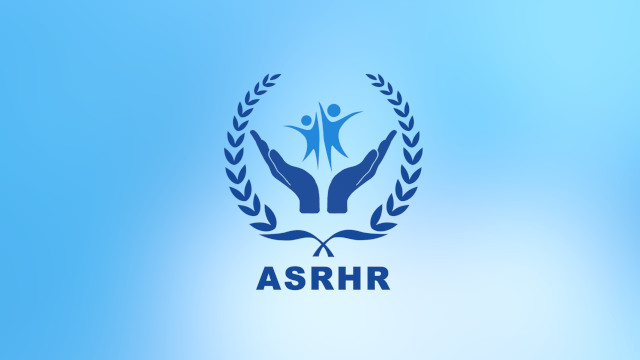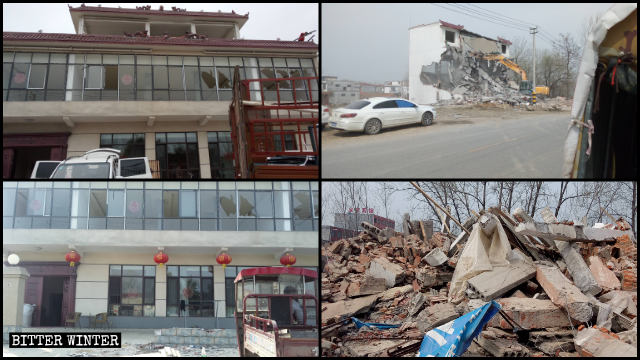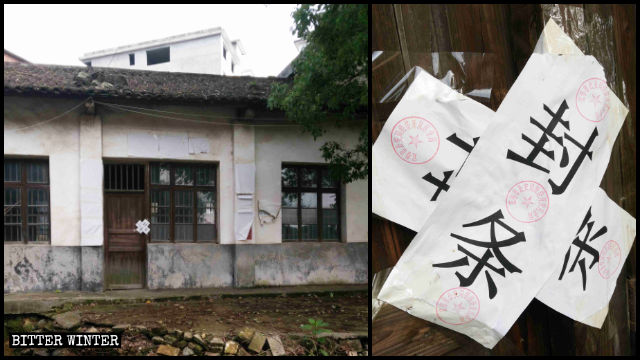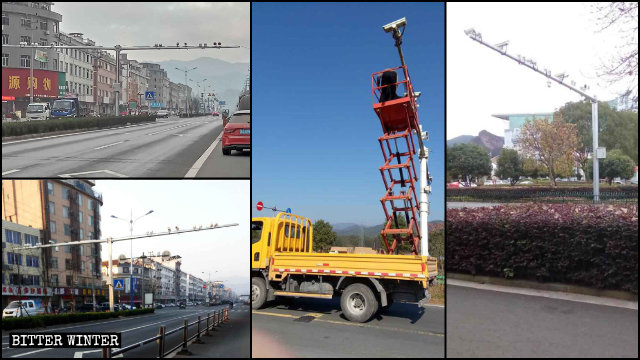European Parliament
2014-2019
TEXTS ADOPTED
Provisional edition
P8_TA-PROV(2018)0377
Mass arbitrary detention of Uyghurs and Kazakhs in the Xinjiang Uyghur Autonomous Region
European Parliament resolution of 4 October 2018 on mass arbitrary detention of Uyghurs and Kazakhs in the Xinjiang Uyghur Autonomous Region (2018/2863(RSP))
The European Parliament,
– having regard to its previous resolutions on the situation in China, in particular those of 26 November 2009 on China: minority rights and application of the death penalty1, of 10 March 2011 on the situation and cultural heritage in Kashgar (Xinjiang Uyghur Autonomous Region)2, of 6 July 2017 on the cases of Nobel Laureate Liu Xiaobo and Lee Ming-che3, of 15 December 2016 on the cases of the Larung Gar Tibetan Buddhist Academy and Ilham Tohti4, and of 12 September 2018 on the State of EU-China relations5,
– having regard to Article 36 of the Constitution of the People’s Republic of China, which guarantees all citizens the right to freedom of religious belief, and to Article 4 thereof, which upholds the rights of ‘minority nationalities’,
– having regard to the EU-China Strategic Partnership which was launched in 2003 and to the joint communication of 22 June 2016 from the Commission and the EEAS to Parliament and the Council entitled ‘Elements for a new EU strategy on China’ (JOIN(2016)0030),
– having regard to the 36th round of EU-China dialogue on human rights held in Beijing on 9-10 July 2018,
– having regard to remarks in the address made by Michelle Bachelet, the UN High Commissioner for Human Rights, to the 39th session of the UN Human Rights Council on 10 September 2018, in which she expressed deep concern over ‘re-education camps’ and asked the Chinese Government to admit independent investigators,
– having regard to the recent general allegation letter sent in May 2018 by the UN Working Group on Enforced or Involuntary Disappearances (WGEID) to the Chinese Government, expressing concern about the continued deterioration of the situation and increase in the number of Uyghurs being arbitrarily detained,
– having regard to the International Covenant on Civil and Political Rights of 16 December 1966,
– having regard to the Universal Declaration of Human Rights of 1948,
– having regard to Rules 135(5) and 123(4) of its Rules of Procedure,
A. whereas the promotion of and respect for universal human rights, democracy and the rule of law should remain at the centre of the long-standing relationship between the EU and China, in accordance with the EU’s commitment to uphold these very same values in its external action and China’s expressed interest in adhering to them in its own development and international cooperation;
B. whereas since President Xi Jinping assumed power, the human rights situation in China has deteriorated further, with the government stepping up its hostility toward peaceful dissent, the freedoms of expression and religion, and the rule of law;
C. whereas the situation in Xinjiang, which is home to around 11 million Uyghurs and ethnic Kazakhs, has rapidly deteriorated in recent years, as absolute control of Xinjiang has been elevated to a top priority, while further challenges are posed by periodic terrorist attacks in or allegedly connected to Xinjiang, by Uyghurs;
D. whereas the UN Committee on the Elimination of Racial Discrimination has cited estimates that ‘from tens of thousands to upwards of a million Uighurs’ may be being detained in the Xinjiang Uyghur Autonomous Region (XUAR), without being charged or tried, under the pretext of countering terrorism and religious extremism; whereas this would represent the largest mass incarceration of an ethnic minority population in the world today;
E. whereas the US Congressional-Executive Commission on China has also stated that there is solid information that Uyghurs, Kazakhs and other primarily Muslim ethnic minorities in the XUAR have been subjected to arbitrary detention, torture, egregious restrictions on religious practice and culture, and a digital surveillance system so pervasive that every aspect of daily life is monitored – through facial recognition cameras, mobile phone scans, DNA collection and an extensive and intrusive police presence;
F. whereas detainees are reportedly being held in poor conditions, subjected to political indoctrination, including mandatory courses in patriotism, and forced to denounce their ethnic and religious identity; whereas there are recent reports of deaths in custody including suicides;
G. whereas thousands of children have reportedly been separated from their parents, who are arbitrarily detained in internment camps, and are being held in overcrowded orphanages, even if only one of their parents is detained in a camp;
H. whereas at the UN hearing of 13 August 2018 in Geneva, the Chinese delegation denied the accusations made by UN experts of having detained ethnic Uyghur Muslims in ‘re- education’ camps in the western region of Xinjiang; whereas comprehensive evidence exists of the construction and upgrading of these facilities;
I. whereas some foreign journalists have been pressured into refraining from reporting on sensitive issues such as Uyghur human rights and the use of internment camps, including in some cases through the refusal to renew press credentials;
J. whereas nowhere in the world is the population monitored as strictly as in the XUAR; whereas the provincial government has recruited tens of thousands of additional security personnel;
K. whereas data is collected by an ‘integrated joint operations platform’ that also stores further data on the population, including consumer habits, banking activity, health status and the DNA profile of every single inhabitant of the XUAR; whereas Muslims in the region are required to have a spyware app on their mobile phones and failure to install the app is an offence;
L.whereas first-hand testimony and credible academic research have indicated that there is intentional targeting of Uyghurs with ties to people abroad and of those with religious beliefs;
M. whereas Uyghurs overseas have been pressured to return to China, often with the support of host states; whereas Chinese embassies abroad have refused to renew many Uyghur passports, leading to insecurity in terms of work and study;
N. whereas requests from the WGEID and the UN High Commissioner for Human Rights, and other UN Special Procedures mandates to send independent investigators to Xinjiang have been routinely denied by the Chinese Government;
O. whereas the Uyghur economics professor Ilham Tohti was sentenced to life imprisonment on 23 September 2014 on the charge of alleged separatism, after being detained in January of the same year; whereas seven of his former students were also detained and sentenced to imprisonment of between three and eight years for alleged collaboration with Mr Tohti; whereas Ilham Tohti has always rejected separatism and violence and has sought reconciliation based on respect for Uyghur culture;
- Is deeply concerned about the increasingly suppressive regime imposed on different minorities, in particular Uyghurs and Kazakhs, with additional restrictions being placed on the constitutional guarantees of their rights to freedom of cultural expression and religious belief, speech and expression, and peaceful assembly and association; demands that the authorities respect these fundamental freedoms;
- Calls on the Chinese Government to immediately end the mass arbitrary detention of members of the Uyghur and Kazakh minorities, to close all camps and detention centres and to release detained persons immediately and unconditionally; is deeply concerned by the numerous allegations of poor conditions, torture and deaths inside the camps; reminds the Chinese authorities that re-education facilities have no legal basis;
- Is alarmed by the reported deaths of Muhammad Salih Hajim, Abdulnehed Mehsum, Ayhan Memet and others, all elderly Uyghurs, academics and community leaders, in internment camps;
- Expresses its deep concern at the state’s implementation of measures to ensure the ‘comprehensive supervision’ of the region through the installation of China’s ‘Skynet’ electronic surveillance system in major urban areas, the installation of GPS trackers in motor vehicles, the use of facial recognition scanners at checkpoints and at train and petrol stations, and the blood-collecting activities of Xinjiang’s police force to further expand China’s DNA database;
- Emphasises that government control and the compulsory mass collection of citizens’ data primarily targets and affects Uyghurs, Kazakhs and other ethnic minorities, in violation of the prohibition of discrimination under international law;
- Urges the Chinese Government to release to the families concerned the full details of those forcibly disappeared in Xinjiang, including their names, whereabouts and current status;
- Is deeply concerned about China’s Counterterrorism Law (2015) and the Regulation on De-Extremification, which have an overly broad definition of what constitutes a terrorist act; calls, therefore, on China to clearly differentiate between peaceful dissent and violent extremism;
- Reiterates its call on the Chinese Government to immediately and unconditionally release Uyghur scholar Ilham Tohti and all others detained solely for the peaceful exercise of their freedom of expression and, pending their release, calls on China to ensure that they have regular, unrestricted access to their families and lawyers of their choice; calls, furthermore, for the release of Eli Mamut, Hailaite Niyazi, Memetjan Abdulla, Abduhelil Zunun and Abdukerim Abduweli, as requested by the EU during the 36th round of the EU-China Human Rights dialogue held in Beijing on 9-10 July 2018;
- Urges the Vice-President of the Commission / High Representative of the Union for Foreign Affairs and Security Policy (VP/HR), the European External Action Service (EEAS) and the Member States to monitor intensely the changing human rights developments in Xinjiang, including the increased government repression of Uyghurs, Kazakhs and other ethnic minorities, and to send a strong message to the highest level of the Chinese Government to end the grotesque human rights violations;
- Calls on the Chinese authorities to allow free, unhindered access for journalists and international observers to Xinjiang province;
- Recalls the importance for the EU and the Member States of raising the issue of human rights violations in Xinjiang with the Chinese authorities, including at leadership level, in line with the EU’s commitment to project a strong, clear and unified voice in its approach to the country, including at the yearly Human Rights Dialogue and the upcoming Euro-Asia Summit;
- Expresses its deep concern regarding the reports of harassment of Uyghurs abroad by the Chinese authorities aiming to compel them to act as informants against other Uyghurs, return to Xinjiang or remain silent about the situation there, sometimes by detaining their family members;
- Welcomes the decision taken by Germany and Sweden to suspend the return of all ethnic Uyghurs, Kazakhs or other Turkic Muslims to China in consideration of the risk of arbitrary detention, torture or other ill-treatment they would face in the country, and calls on all other Member States to follow suit and to expedite asylum claims by Turkic Muslims at risk of being forcibly returned to China; further calls on EU Member States to invoke domestic law, as appropriate, to investigate the Chinese Government’s intimidation of Turkic Muslim diaspora communities in Europe;
- Reminds China of its human rights obligations following its signing of a wide range of international human rights treaties and therefore recalls that China is expected to live up to these commitments;
- Instructs its President to forward this resolution to the Vice-President of the Commission / High Representative of the Union for Foreign Affairs and Security Policy, the Council, the Commission, the governments and parliaments of the Member States, and the Government and the Parliament of the People’s Republic of China
1. OJ C 285 E, 21.10.2010, p. 80.↩
2. OJ C 199 E, 7.7.2012, p. 185.↩
3. OJ C 334, 19.9.2018, p. 137↩
4. OJ C 238, 6.7.2018, p. 108.↩
5. Texts adopted, P8_TA(2018)0343.↩





